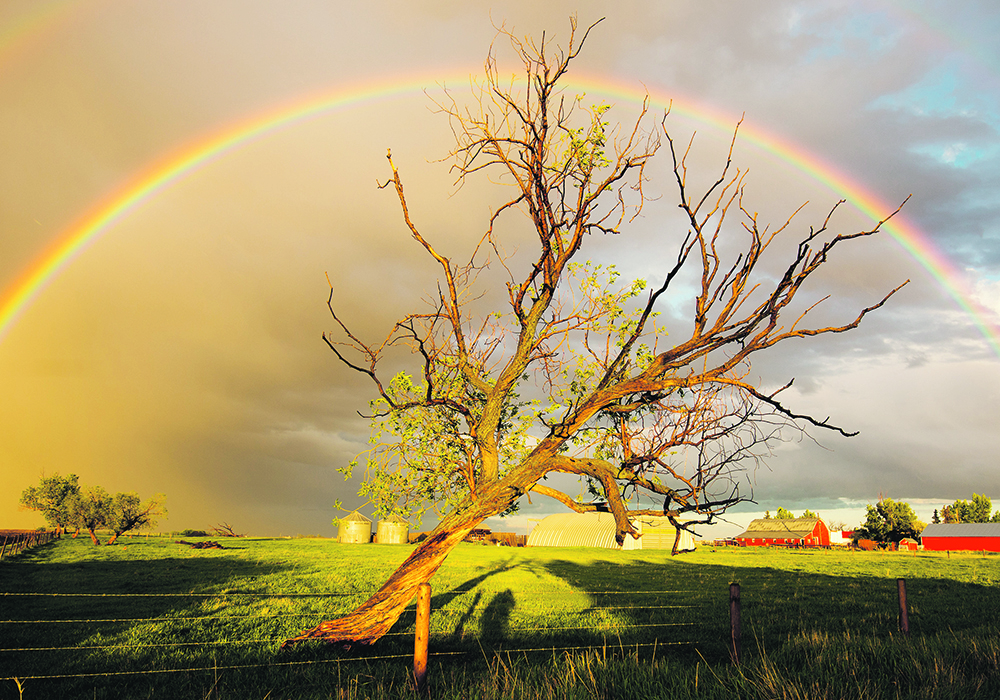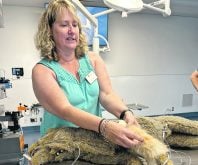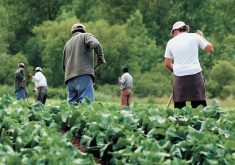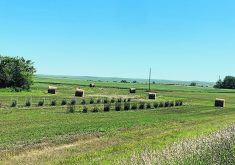Travel restrictions make it even more difficult to deal with issues such as addiction, domestic violence and mental health
Supply chain disruptions are causing much stress in rural Canada, says a woman who works with rural communities in her role with Ontario’s agriculture ministry.
Jacqui Empson Laporte, who also volunteers with Victim Services in Huron County, Ont., where she lives, participated last month in a virtual panel held by the University of Guelph to discuss COVID-19’s social impacts on rural communities.
Hosted by the Arrell Food Institute, the panel brought together researchers to discuss takeaways from the pandemic.
“In both roles, I’m seeing the stress in farmers and their families caused by disruptions by the supply chains or even the threat of supply chain disruptions,” Empson Laporte said, adding market uncertainty and small businesses in small towns are trying to adapt to new consumer needs.
Read Also

Farming Smarter receives financial boost from Alberta government for potato research
Farming Smarter near Lethbridge got a boost to its research equipment, thanks to the Alberta government’s increase in funding for research associations.
The Victim’s Services staff is small and largely volunteer-driven, but under pressure because of the pandemic.
“When our volunteer base is undergoing stress at the scale COVID is pushing on our communities, it really starts to destabilize our establishments,” she said, noting that increases the burden on staff and requires narrowing the scope of calls they respond to, primarily fatalities and violence, because they’re likely to cause the biggest ripples in a community.
“It’s really hard to reach out for help when you’re stuck in your home in the same conditions that are causing the crisis, so if there is a challenge of addiction or domestic violence or mental health, people are not only isolated by distance in rural Ontario but isolated because of the travel restrictions.”
She noted more tele-counselling opportunities are needed and could help rural communities, but those opportunities are only available if there is proper internet.
Helen Hambly Odame, an associate professor at the University of Guelph who focuses her research on connectivity of rural areas, said the pandemic shows “how essential broadband has become for every single Canadian, urban and rural.”
She said there is a “digital divide” that has made it difficult for some rural communities to adapt to changes resulting from the pandemic, saying those lacking connectivity are experiencing more isolation from society and the economy.
“We can see how essential connectivity is,” she said, adding later the internet is a challenge but also a source of great opportunity in the future. “Let’s look at the future as one of opportunity through connectivity.”
She is also hopeful some workplaces recognize employees can successfully work from home and that “some of those workers choose to work from home in rural Ontario” because that can become an economic driver for rural communities.
Ryan Gibson is a University of Guelph associate professor who focuses on rural planning and development. He told the panel the ability of people in rural communities to volunteer their time has been compromised because of COVID-19, while many non-profits have had to rethink how they deliver services.
“Throughout rural communities across this country volunteerism has been a really key feature and it’s part of the fabric of what makes a rural community,” he said, noting there have been ebbs and flows within rural communities but right now “rural communities are challenged in how they respond during the COVID-19 crisis.”
He singled out support for newcomers in rural communities.
“This pandemic has caused a disruption in terms of the supports for the newcomers, it’s challenged the ability to tap into that social fabric, to be able to participate and volunteer, to have your kids take part in extracurricular activities,” he said.
Abdul-Rahim Abdulai, a PhD student at the University of Guelph, echoed that sentiment.
“Most newcomers, like myself, can find a community in a community,” he said, adding that it is difficult to settle in without that support network. “Just moving into a new area by yourself can be very challenging, of course.”
Gibson said that post-pandemic, “we need to start thinking why our responses to COVID-19 need to look different in different places” because urban strategies may not be the best response for rural areas.
“One of the really important things we have to think about as we move forward is how to build place-based strategies, how do we build on the assets that are currently in our communities, within the people who live there, and how can we use those assets to meet our local priorities,” he said.


















